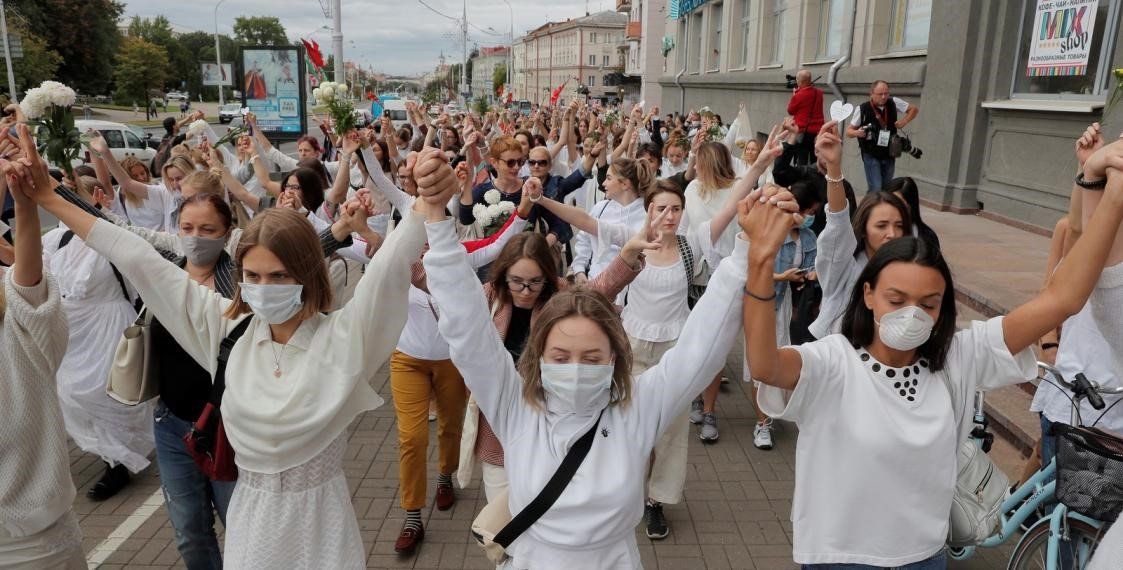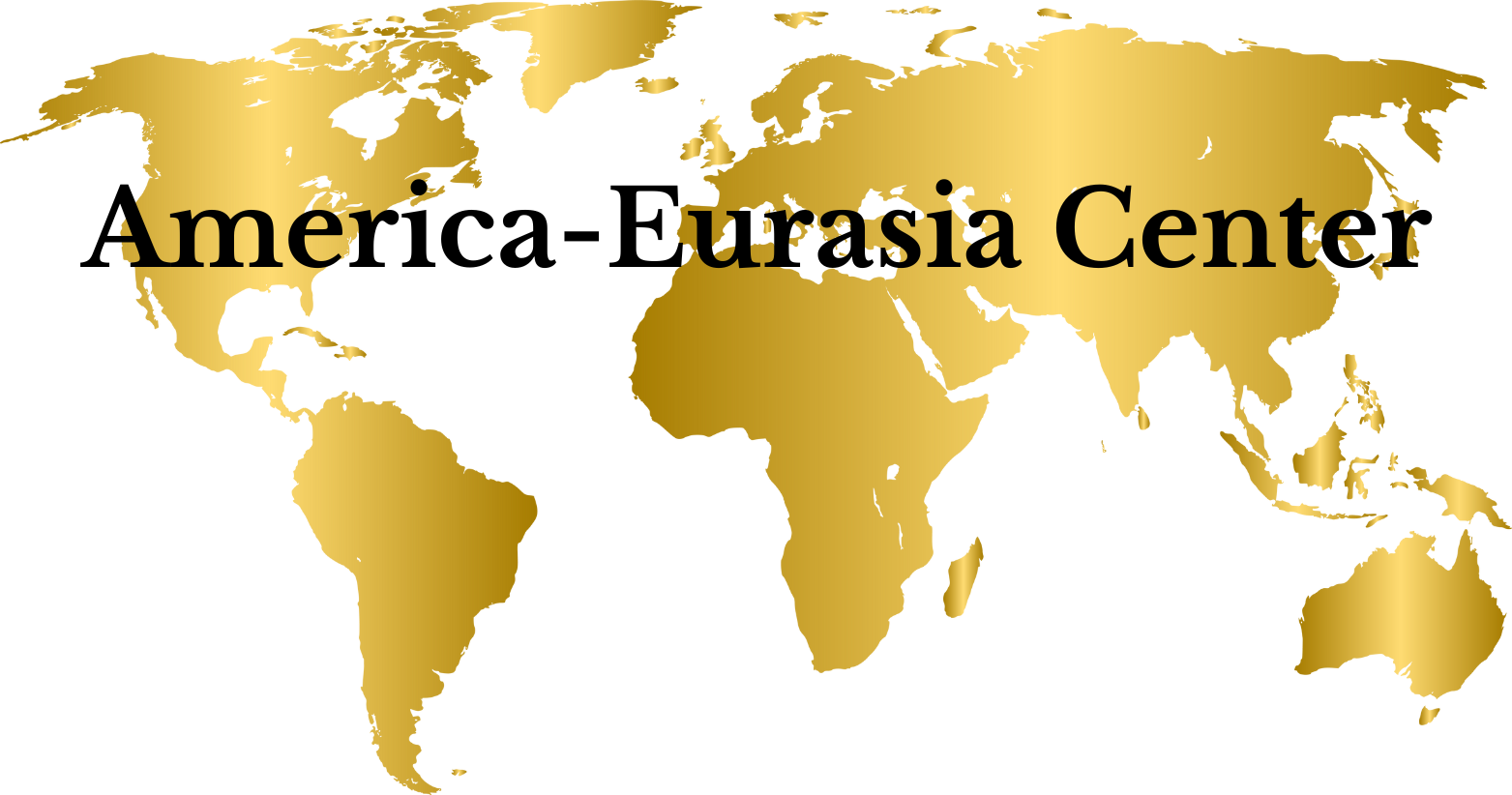The Eurasia Center’s Civil Society Program:
Civil Freedoms, Religious and Ethnic Toleration, Rule of Law
Throughout Eurasia
there has been an effort to promote a civil society and greater freedoms for its citizenry after the collapse of totalitarianism in the Soviet Union and Eastern Europe.
Other citizens within Eurasia, for example, in Myanmar, Iran, Syria and North Korea, still have not realized their basic freedoms.
The Eurasia Center’s Civil Society Program focuses on the important questions of our day - what is necessary to build institutions that encourage governments to provide basic freedoms, allow religious and ethnic toleration, while ensuring minority rights for its citizens.
For example, the goal of creating a middle class - the mainstay of durable civil society, would be crucial within these nations. Another crucial goal would be building an honest and effective law enforcement system in countries where corruption exists in governing institutions. Instilling a positive civic ethos on all levels of the population is also an important requirement for reform, if the rule of law is to succeed, where political parties and the system insure protected secure democratic elections where candidates have a chance to run as representatives of a fair and equitable society. These critical aspects will bring the politics of positive participation, not a cycle of despair and civil war, or the polarization of the societies of each nation in today’s world, especially through social media.
A positive relationship between the federal government, local governments, and citizenry is also a fundamental goal of building a civil society. Civil society values the basic freedoms of man: freedom of association, freedom of expression, representative government, and respect for a diversity of ethnicities and religions among its members. A vigorous civil society is important for ensuring that the freedoms of the citizenry are preserved in times of crisis and change.
The Eurasia Center's Civil Society Program evaluates real progress in building civil society made by nations in Eurasia. The Eurasia Center’s Civil Society Program is developing the Freedom Computer Network which connects activists and universities in order to exchange information on measuring progress within these nations.
After the fall of the Berlin Wall and the break-up of the Soviet Union, old ethnic rivalries and neo-nationalist efforts created new conflicts within Eurasia. Such conflicts have stimulated racial hatred as well as ethnic cleansing, in some nations, which has in some cases led to genocide. There remains a chance for future war if the goals of cooperation, ethnic and religious toleration, are not promoted. Negative forces have reemerged within Eurasia in the form of the radical extremist movements and reactionary political forces that have spread eastward, assaulting their own citizenry, refugees from of other countries, resident Jewish populations, and foreigners living abroad.
Ukraine is now facing the most serious threats to its civil society by the invasion of Russia.
It is a war that started by the Putin regime with a number of goals including forcing Ukraine out of the NATO partnership, however it includes Putin's plan to erase Ukraine, as a nation, from the map. This gross violation of international law coupled with the war crimes committed by Russian forces in Ukraine amounts to genocide.
After similar events in Syria, Russia once again is isolating itself from the international community and crushing all dissent against the war by imposing harsh penalties upon objectors within Russia.
The Eurasia Center’s Civil Society Program promotes religious and ethnic tolerance and seeks to educate and provide new alternatives toward stopping these negative trends developing in these areas.
Protecting the rights of ethnic minorities constitutionally and providing religious freedom and ethnic toleration for citizens is one of the hallmark lessons of the American historical experience. By highlighting problems in Eurasia and providing new effective solutions, which promote religious and ethnic tolerance and minority rights, The Eurasia Center continues to be a positive force in changing attitudes within these nations.
The Program for Civil Society’s focus from Europe to Asia and that of the Middle East, presents a host of challenging problems which our Civil Society specialists are addressing through our research and publications, as well as our activity in the field.

FREEDOM vs AUTHORITARIANISM

THE AMERICA-EURASIA CENTER'S CIVIL SOCIETY PUBLICATIONS
From the Persecution of Human Rights to Cultural Limitations of Azerbaijani Turks in Iran, July 2025
2025 South Korea Elections, June 2025
Changes in Japan’s Foreign Policy After the 2024 Election, June 2025
Removing Sanctions on Syria? February 2025
Death of a Democratic Hero Alexei Navalny, February 2024
The Inevitable European Union, February 2024
Taiwan’s 2024 Presidential Election, January 2024
Repression of Educational Human Rights in Iran - Azerbaijanis, January 2024
Christmas in Canceled in Bethlehem, December 2023
Palestine's Diaspora Rally for Gaza Worldwide, December 2023
Invasion-Massacres, Israel's War with Palestine, October 2023
The Power of Music - Cultural Diplomacy, October 2023
Stopping Gun Violence in Serbia, June 2023
The Dilemma of AI in the European Union, June 2023
Elections in Türkiye - May 2023
France's Painful Pension Protests, April 2023
Lula’s Win in Brazil, March 2023
Asia's Population on the Rise and Decline, March 2023
Political Change & Reform in Kazakhstan, Feb 2023
Poland's Miracle - Helping Ukraine's Refugees, February 2023
Italy's New National Government, January 2023
Iran's National Soccer Team, December 2022
Japan Success in Tokyo Olympics, June 2022
Icons of Change: Greta & Malala, June 2022
North Korea's Covid-19 Crisis, June 2022
Uyghur Human Rights in China, June 2022
Rise of Populism in Poland & Hungary, June 2022
Education for All - Queen of Qatar, May 2022
Threat of Secession - Republika Srpska, April 2022
Is Euroscepticism Rising in the EU?
Tackling Illiteracy in India, International Education
The Future of Erdogan and Turkey, April 2022
Kazakh Protests Rock the Nation, February 2022
Protecting Hindus in Bangladesh, November 2021
Civil Society Highjacked in Former FSU, October 2021
Cambodia's Internet Censorship, September 2021
Silencing of Democracy in India, August 2021
Transfer of War Criminal Karadzic, August 2021
Syria Refugee Crisis - UN Crossing August 2021
Gender Discrimination India, August 2021
Dutch Election - Bellwether for Europe, April 2021
Navalny In Penal Colony Ik-2 Vladimir, Russia, April 2021
The Myanmar Coup d'etat -2021, April 2021
Violence Against Asian-Americans, March 2021
Crisis - Migration from Libya, March 2021
Russian Influence Grows from Syrian War, March 2021
Yemen - Is Peace in Sight? February 2021
India's Farmers' Protest, February 2021
Pakistan: Democracy or Authoritarianism? February 2021
Syria's Covid Refugee Crisis, February 2021
Crisis in Ukraine - War or Peace? February 2021
Chinese Civil Liberties Post-Covid-19, August 2020
The Lebanese Revolution, August 2020
Underground Chinese Civil Society, December 2020
Eurasia Brief – Refugee Policy during Covid-19 Crisis, December 2020
Eurasia Brief – Syrian Civil War - Fact Sheet, December 2020
The Marginalization of Palestinian Women, November 2020
Russia's Domestic Violence, November 2020
War in Afghanistan, Dealing with the Taliban, August 2020
Eurasia Brief – Russian Orthodox Church, August 2020
The Catalan Independence Movement, August 2020
Education in Kazakhstan, July 2020
Living in a Post-Coronavirus Vaccine World, May 2020
Social Issues in India, April 2020
Yemen Crisis, Civil War, and Prospects for Peace, March 2020
Eurasia Brief – Gender Discrimination in China, March 2020
Algeria’s Protests and Election, December 2019
Abandoning Our Kurdish Allies, December 2019
Why Hong Kong is So Important, December 2019
Ukrainian Peace and a New Transnistria, December 2019
Eurasia Brief – Yemen’s Regional War, December 2019
Puerto Rico's Summer Revolution, September 2019
US Sanctions are Having a Worldwide Effect, June 2019
Yellow Vest Movement, May 2019
Refugee Crisis and Integration in Europe, February 2019
Human Rights in China - The Xinjiang Case, November 2018
Women's Issues in Saudi Arabia, September 2018
Regional Cold War and Israeli-Palestinian Peace, August 2018
Islamic State's Campaign of Cultural Destruction, November 2017
After the Arab Spring, November 2017
Refugee Crisis and the European Union, December 2017
Refugee Crisis in the Middle East, December 2017
Terrorism in Europe, July 2017
Empowering Women through Shared Experiences, July 2017
Jordan and the Syrian Refugee Crisis, April 2017
In Praise of Immigrants, Three Inventions which Put America Back on Top, February 2017
European Union, and the Syrian Refugee Crisis, August 2016
The European Union Migrant Crisis, January 2016
Solving the Crisis Between Ukraine and Russia, March 2015
Islamic State of Iraq & Syria (ISIS), July 2014
Russia and Ukraine’s Failed Electoral System: Proportional Representation Jon Basil Utley, The Eurasian Center/EBC, March 31, 2014
Система пропорционального представительства: недостатки избирательных систем России и Украины Джон Бейзил Атли, The Eurasian Center/EBC, 31 марта 2014
The Plight of Refugee Women, March 2014
Euromaidan and Ukraine’s Destructive Divide, March 2014
Moldova Democratic Reforms, February 2013
Immigration in Eurasia - Incentives and Dangers, January 2013
The Euro Crisis in Greece, December 2012
Drone Operations, Backlash and Violations of National Autonomy, September 2012
Post-Yugoslav Development Analysis, August 2010
Central Europe's Far-Right: Gaining Strength, May 2009
Anti-Semitism in Ukraine: Post Jackson-Vanik, April 2008
The Future of Chechnya, January 2007









